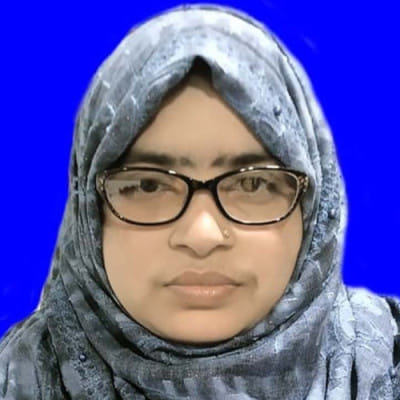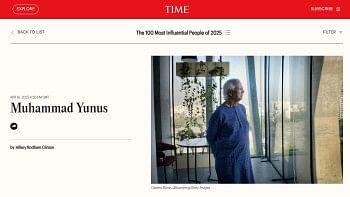Muslim Marriage Registrar: Fighting for job they won’t let her have

In 2012, Ayesha Siddiqua saw a circular for Muslim marriage registrars for Dinajpur's Phulbari municipality.
She applied, aced her interview with a 5-member panel which sent her name to the Ministry of Law, Siddiqua, now 39, told The Daily Star.
But two months later, she was informed that she could not be hired because she is a woman.
Siddiqua refused to accept the decision. In June 2014, she filed a writ petition with the High Court challenging the government's decision to not employ her based on her gender.
Almost six years later, on February 26, 2020, Siddiqua was further disappointed when the High Court ruled against her and upheld the decision of the law ministry. Recently, the full text of the verdict was released after the judges signed it, bringing the court's decision to light.
The High Court bench of Justice Zubayer Rahman Chowdhury and Kazi Zinat Hoque ruled that women cannot become Nikah (Muslim marriage) registrars due to "certain physical conditions", religious "disqualifications" and the "social and practical conditions of Bangladesh".
"It has to be borne in mind that due to certain physical conditions a lady cannot enter the mosque during a certain time of the month. She is even excused from performing the mandatory daily prayers during this particular time. This disqualification does not allow her to conduct the religious task. We are mindful of the fact that Muslim marriage is a religious ceremony and has to be guided by the terms and dictates of Islam," the HC observed.
In the full text of the verdict, the HC said the primary role and duty of a Nikah registrar is to solemnise the marriage between Muslim couples, which is essentially a religious ceremony.
On account of rapid urbanisation coupled with a lack of open spaces, a recent trend has developed to have the Nikah ceremony solemnised at local mosques, it said.
According to the full text of the HC verdict, a marriage ceremony is not merely a family or social event, but it is essentially a religious ceremony which entails certain religious functions.
The marriage ceremony is usually conducted either by the Nikah Registrar himself or by the Imam of the mosque of the locality where the marriage ceremony takes place.
"How is religion related to this? A marriage registrar will simply be registering the marriage," said Siddiqua in her reaction to the verdict yesterday. "If people want a man to conduct the religious ceremony, they can get a separate imam. The registration can then be done separately."
Siddiqua has filed an appeal against the High Court's decision.
Rights activists especially in the field of menstrual safety and hygiene are siding with Siddiqua, and decried the verdict as a backwards step. This further entrenches the social stereotype that menstruating women are impure, they said.
"The verdict has justified existing social taboos about a menstruating woman being impure," said Sharmin Kabir, who runs Wreetu, an organisation which provides sustainable and affordable menstrual management services.
Naripokkho circulated a statement saying they are surprised, angry and disappointed.
"The fact that the High Court took menstruation to be an impediment for a woman when becoming a marriage registrar is illogical and ridiculous. This is a violation of a woman's constitutional right," the statement said.
"Instead of using religion and society as an excuse to take such a backward-thinking step, we expect decisions to reflect the government's commitment towards equality," the organisation added.
"Why is the whole burden of impurity to be borne by women?" questioned Muktasree Chakma Sathi, founder and executive director of Supporting People and Rebuilding Communities, an organisation that has worked with menstrual health advocacy in the Chittagong Hill Tracts.
"The court is the place to remove barriers for women put by the society. Now the court is putting barriers on where a woman can be employed or not. This will have an impact on other jobs where religion plays even the smallest role," she said.
Both Sharmin Kabir and Sathi protested the use of the phrase "certain physical conditions" instead of using the word "menstruation". "It is a perfectly normal physical process," they said.
This is an official recognition of the social stigma that already exists, commented Rubina Akter, co-founder of Campaign RED which advocates for breaking taboos about menstrual health in schools and madrasas in Chattogram.
"As it is, school and madrasa students are not ready to accept or process that menstruation is not impure. This is confirming their stigma," she added.
A separate statement was sent by 21 citizens including veteran authors, writers, artists and historians like Abdul Gaffar Choudhury, Selina Hossain, Muntasir Mamoon, Ferdousi Mazumder, Hasan Azizul Haque, Anupam Sen, Shamsuzzaman Khan, Mamunur Rashid, Shahriar Kabir, Sara Zaker, Abdus Selim Shimul Yusuf, Mohammed Samad and Hasan Arif, among others.
They asked the court to reconsider the verdict and grant women the equality that the constitution promises them.
"During menstruation, women participate in work both inside the house and outside. They fully take part in familial, social, professional, and government affairs, and meticulously shoulder their responsibilities," they said.

 For all latest news, follow The Daily Star's Google News channel.
For all latest news, follow The Daily Star's Google News channel. 



Comments